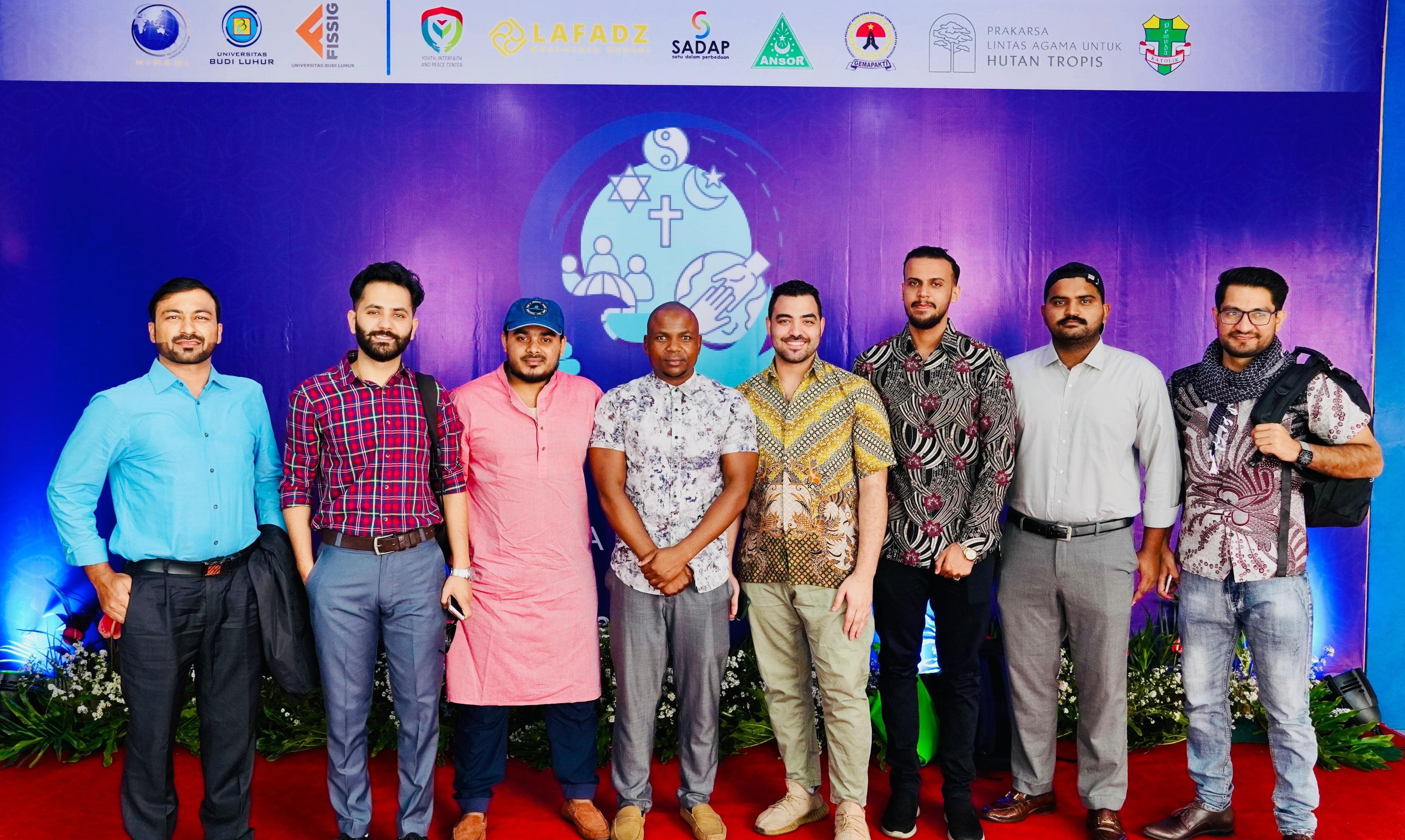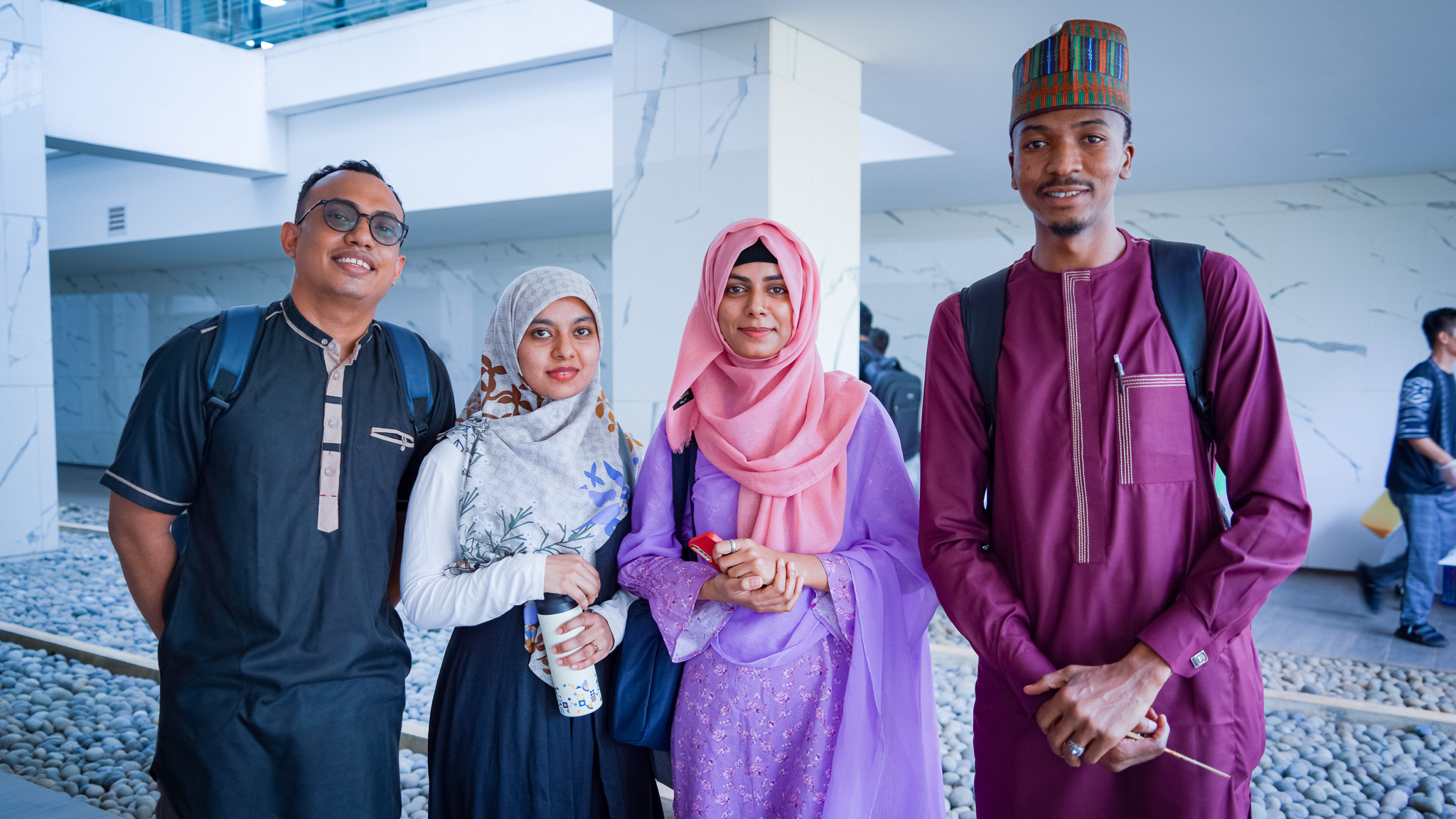From Kano to Jakarta: A Nigerian Student's Journey Through Indonesia's Political Landscape
October 07, 2024Contributor: Supriyono | Editor: Dadi Darmadi | Photo: Achmad Jatnika & Salisu G. Abdullahi
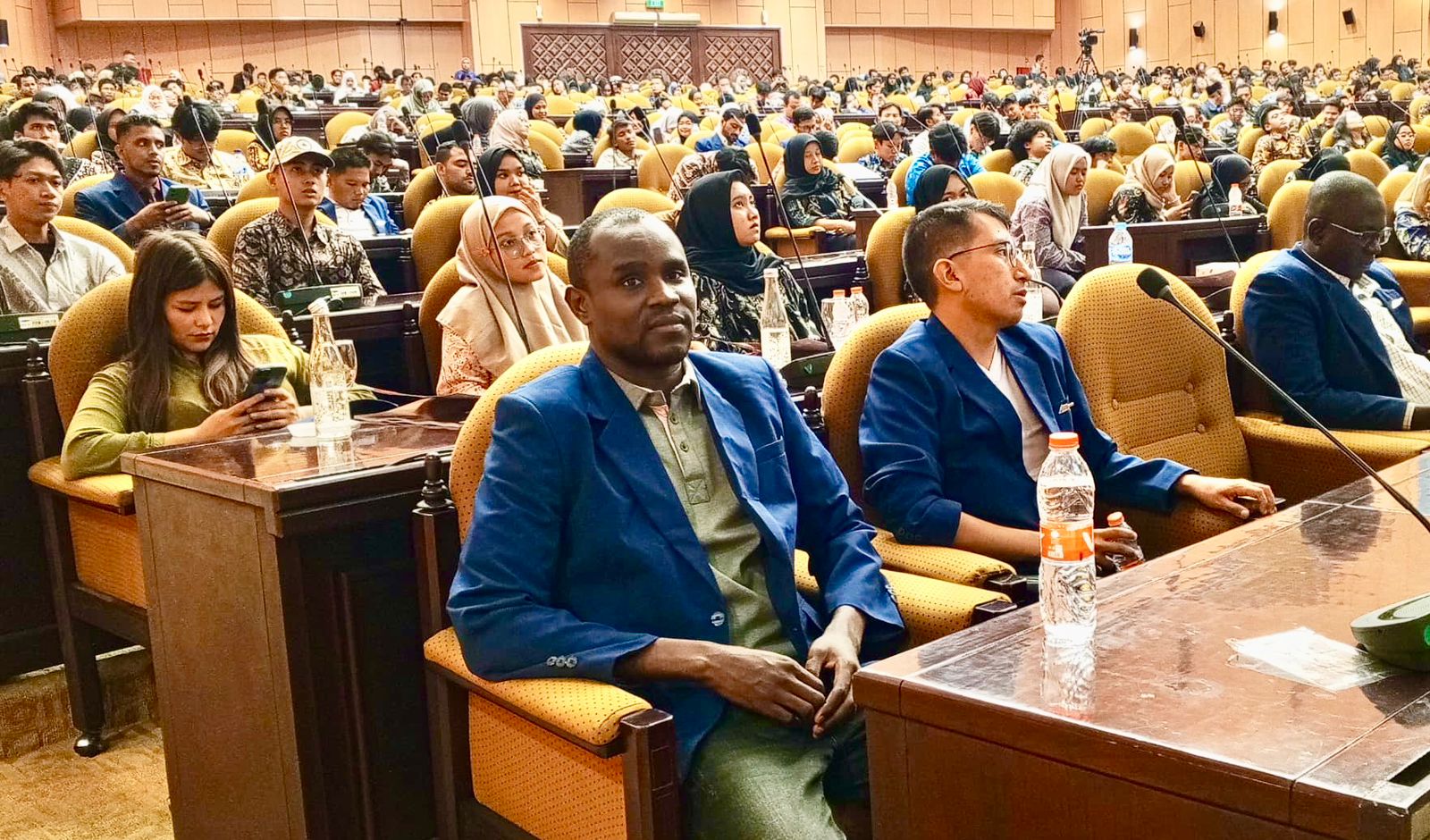
For Salisu Garba Abdullahi, a PhD student from Nigeria studying Economics at Universitas Islam Internasional Indonesia (UIII), the contrast between his homeland and Indonesia had always been a source of fascination. Nigeria and Indonesia, though both rich in culture and history, differ in many aspects—particularly in their approach to governance and security.
This difference became especially apparent to Salisu during his visit to the OIC International Youth Summit at the Indonesian Parliament Office and House of Representatives (DPR-MPR RI) on September 24, 2024. Led by UIII’s International Office and Student Affairs, 15 UIII students, including Salisu, had the unique opportunity to attend the event at the iconic Gedung Nusantara V.
As Salisu stepped into the heart of Indonesia’s political landscape, he could not help but compare it to his experiences in Nigeria. "In Nigeria, we have both state and federal parliaments, but I’ve only visited the state parliament back home in Kano," Salisu explained. "This is my first time visiting the Indonesian parliament, and the difference is striking—particularly in terms of security and infrastructure."
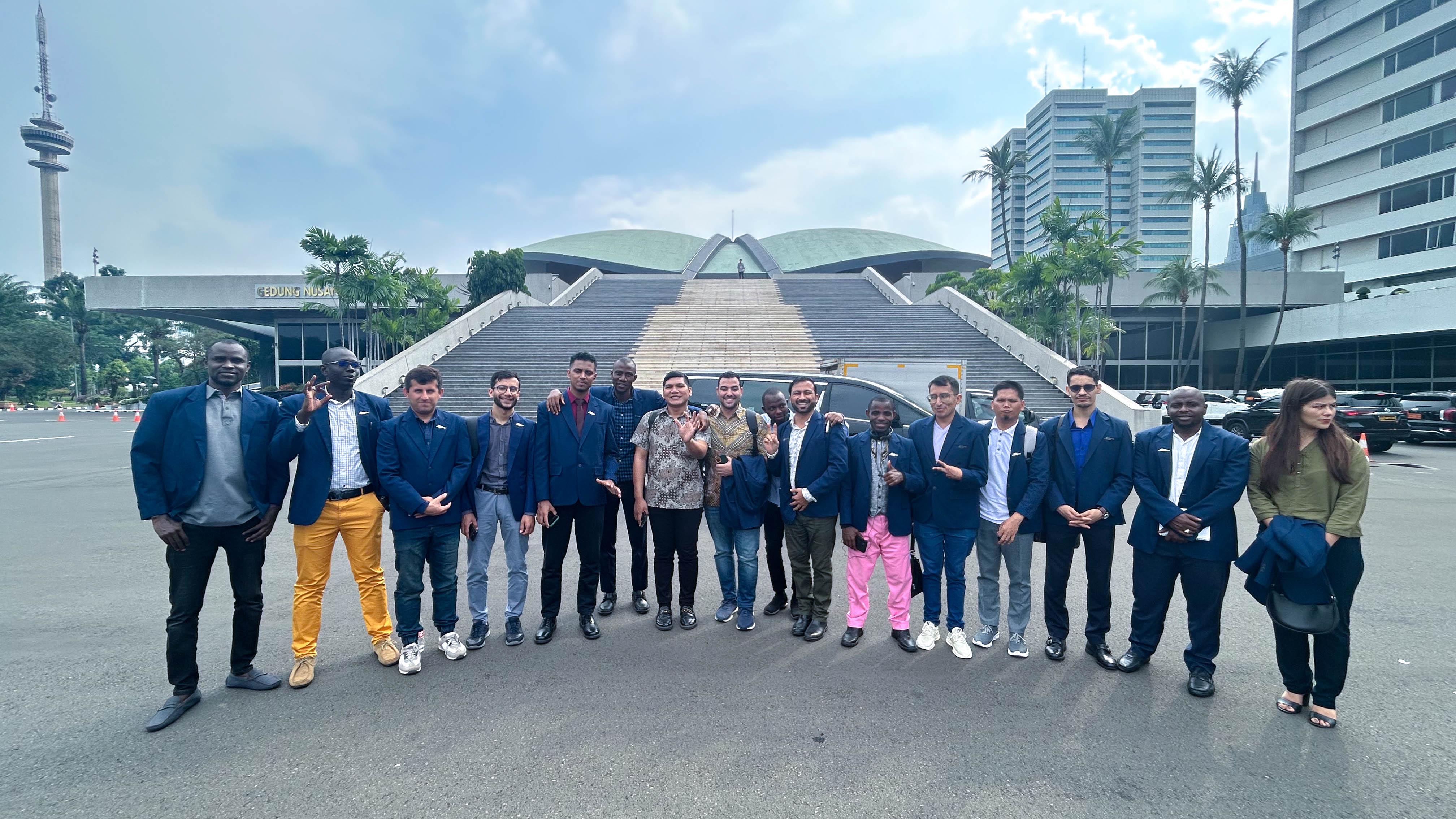
The security measures in place at the Indonesian Parliament immediately caught Salisu’s attention. "We underwent two rounds of security checks before we could enter," he recalled. "It shows a strong sense of security, which is much stricter than what I’ve experienced back home." This, to him, was a key lesson. "I hope my country can learn from this system," he added thoughtfully.
Beyond the physical differences between the two countries, the summit provided Salisu with an important opportunity to reflect on his broader experience as an international student in Indonesia. He felt that events like the OIC International Youth Summit were essential for foreign students like himself.
"The main reason the Indonesian government has given us the opportunity to study here is to widen our horizon, to gain a new perspective," Salisu explained. "It’s not just about the academic curriculum, it’s also about learning from the culture, infrastructure, and people. When we return home, we can implement what we’ve learned."
The summit was held by OIC Youth Indonesia, an organization aimed at empowering and uniting young Indonesians under the values of the Organisation of Islamic Cooperation (OIC). It brought together youth leaders and speakers from across the OIC member countries, and was filled with discussions on leadership, development, and global collaboration.
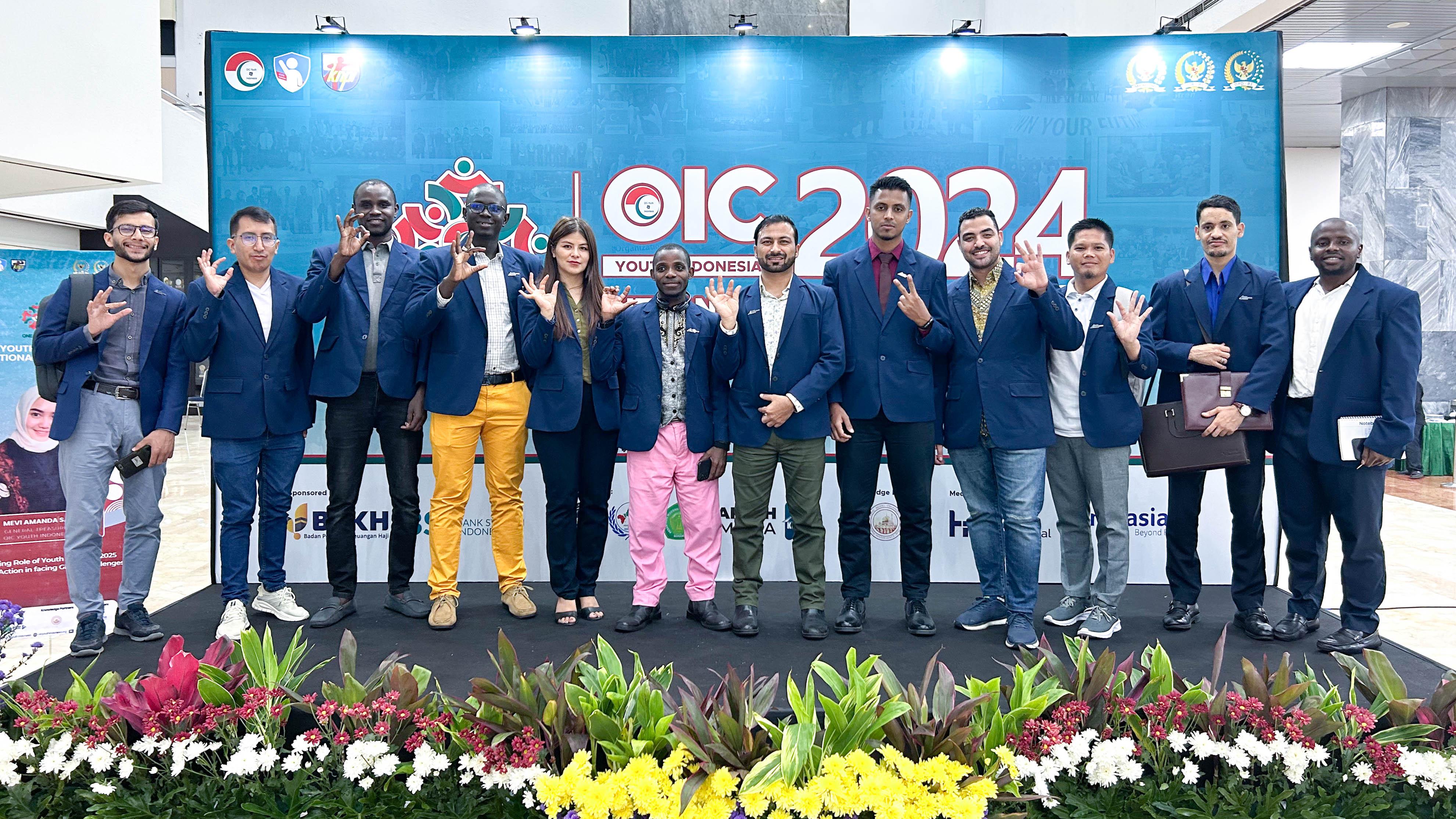
Salisu’s experience at the event extended beyond the formalities of speeches and presentations—it was an immersive learning experience. The visit to the Indonesian Parliament had given Salisu much more than a glimpse into another country’s political system, it had broadened his understanding of how governance and security can shape a nation. "It’s worthwhile for a foreign student to be given this opportunity to come and see things that maybe they can learn from and implement back in their own country," he concluded.
At UIII, the learning experience goes beyond the classroom and academic curriculum, offering students an enriched educational journey through practical exposure and immersive activities. UIII actively promotes a holistic approach to education by organizing field visits, leadership summits, and cultural exchange programs, all of which allow students to gain hands-on experience in real-world settings.
- A Vice Minister’s Tour Through UIII's Landmark, a Walk for a Greener Future
- Flavors, Bonding, Sustainability: UIII’s Green Bazaar Ramadan Re:Market Has It All!
- New Chapter for UIII: Community and State Join Hands to Build Indonesia’s Future
- Exploring Untold Stories from Every Corner of Indonesia
- Capturing Religious Harmony: A Photo Exhibition
- Fostering Interfaith Connections among Foreign Students in Indonesia
- Garuda and Eagle: A Mexican Student’s Reflection on State Symbols at Indonesia’s Parliament
- Honoring Prof. Noorhaidi: A New Chapter for UIII and UIN Sunan Kalijaga
- Prof. Noorhaidi Takes the Helm at UIN Sunan Kalijaga
- Jusuf Kalla: Pope Francis' Visit to Indonesia an Honor and a Call for Unity
